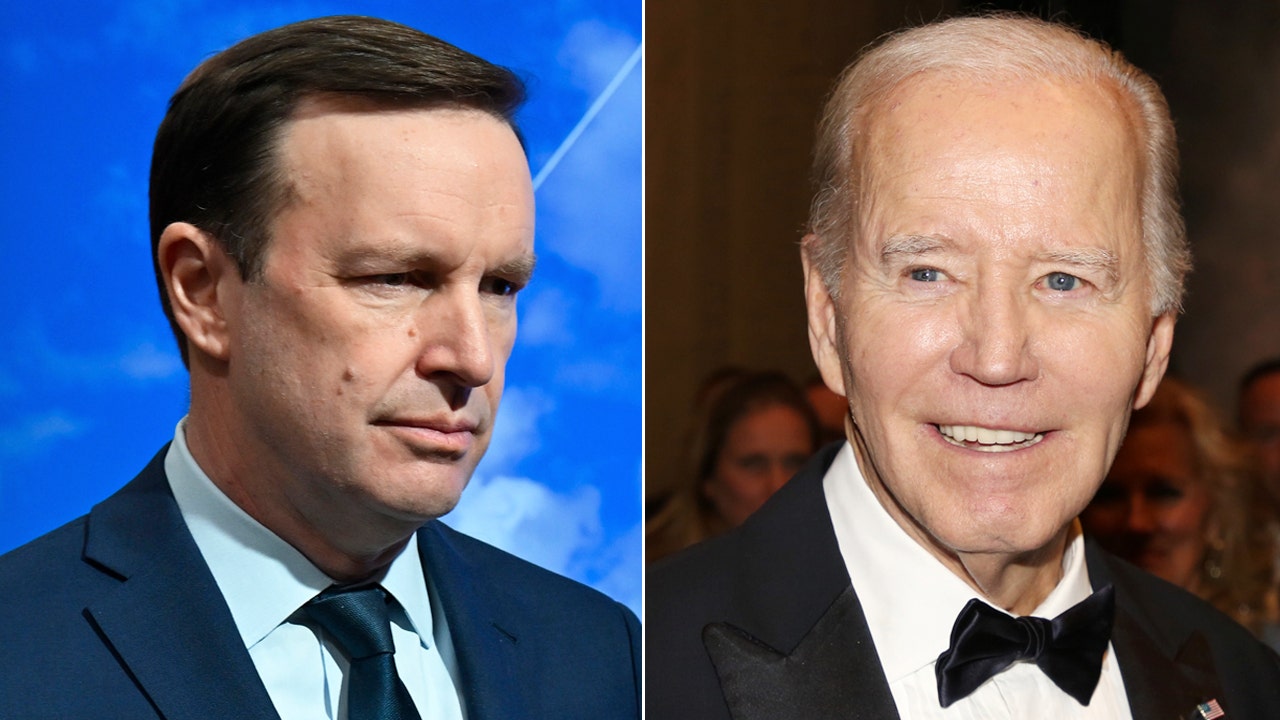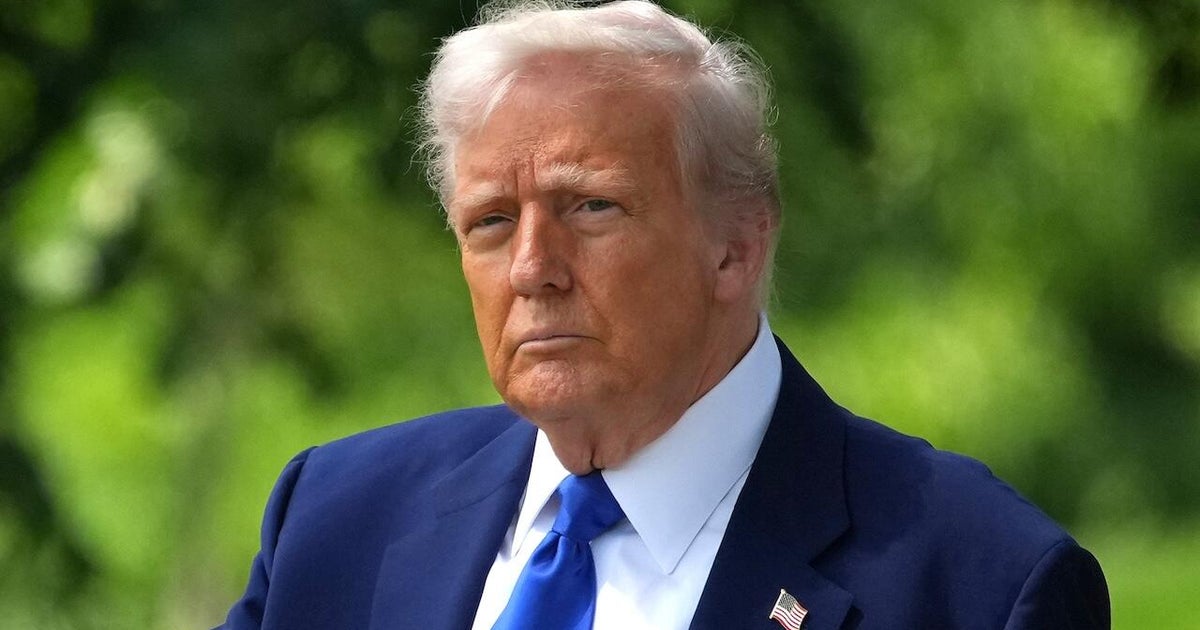Politics
Opinion: Trump proved himself unfit to be commander in chief

When I was an officer in the U.S. military, I abstained from voting in national elections, one small way to keep the armed forces nonpartisan. Now, to uphold that same value and prevent the military from becoming a political tool, I believe that in November, everyone — civilians, service members, veterans, everyone — should vote for whoever has the best chance to keep Donald Trump out of office.
This is not a political statement. This is a strategic judgment based on fitness to lead — both to defend the United States and to protect the civilian-military balance that has enabled our nation to become the greatest in history.
Today’s U.S. military is the world’s most powerful weapon, and in the wrong hands it could become a potent political tool as well. This weapon must not be placed under an unfit commander in chief, as the former president showed himself to be during the previous administration and as he has vowed to be again if he regains power.
I am neither a Democrat nor a Republican, but an American who has fought in the forces that guard our country and our way of life, in the words of our military’s Code of Conduct. I fought in Iraq, earned two Bronze Stars and taught military strategy at West Point. My commitment to military values and nonpartisanship hasn’t changed since I rejoined civilian life. What’s changed is the choice presented in American politics. There really isn’t one, because one of the two major-party presidential candidates is clearly, demonstrably, irredeemably unfit to serve as commander in chief.
Only one candidate has suggested the execution of a former chairman of the Joint Chiefs of Staff.
Only one candidate has called our war dead — specifically, the Marines who fell at Belleau Wood in France during World War I — “suckers” and “losers.”
Only one candidate has suggested putting NASCAR drivers and college coaches in critical national security positions now held by lifelong military professionals who serve as generals and admirals.
All those are awful enough.
But what settles the question altogether is the certainty that former President Trump would end the military’s bedrock contract with the American people: nonpartisanship. He tried last time and came dangerously close.
Nonpartisanship isn’t simply a nice tradition. It’s the two-factor authentication that’s been at the heart of our nation’s defense for decades. The former president instead wants military leadership that mimics the Nazi high command.
“You f— generals, why can’t you be like the German generals?” Trump complained to his chief of staff, retired Gen. John Kelly, in 2018. Trump clarified that he wanted generals who were “totally loyal” and “yes-men,” like the Nazi commanders under Adolf Hitler.
Since America’s founding, there’s been a tension between the military and the rest of the nation’s leadership. The monopoly on violence is necessary. But monopoly means placing immense lethal power in a small, select group.
James Madison worried that “armies kept up under the pretext of defending, have enslaved the people.” But the Revolution persuaded George Washington that a competent standing military was necessary for the country’s survival.
Over time a bargain solidified. America permitted a professional military, not loyal to a party or a president, but to all the people through an oath to uphold the Constitution. The country even granted a certain amount of autonomy in strategic matters. In exchange, the military would remain nonpartisan. It would work to earn the nation’s trust and subordinate itself to civilian leadership. Military leaders engage in an “unequal dialogue” with their civilian superiors, in scholar Eliot Cohen’s phrase. This preserves the best military advice possible while staying deferential to America’s civilian leaders. There is, of course, occasional friction between presidents and generals — well worth it to maintain this pillar of national defense.
Trump wanted to destroy that pillar. Given a second term, he probably would. In its place he would enforce a subservience that would end the ability of America’s military to provide its best (or much of any) advice on peace and war. Trump would deploy the military as a political prop in service of his own brand, as he already tried to do. And he would reshape the military and the national security apparatus so that Trumpists would rise and others would not. His second term would be staffed by those prepared to “rigorously review all general and flag officer promotions” based on pro-Trump partisan qualifications, as described in the Project 2025 playbook.
This very same mistake was an enormous Nazi failure: Hitler broke the German generals, and so his decisions went unchecked and included some of the worst strategic moves in the history of warfare.
The immediate threat of a modern commander in chief who favors the Nazi approach would be the inappropriate use of military force on America’s streets (and perhaps even at polling places). The longer threat for this kind of recklessness is unknowable but foreseeable: eroding remaining trust in the military, eviscerating the civilian-military balance, ending America’s centuries-long success story.
“It is easy to destroy an organization,” wrote retired Adm. William McRaven, former commander of U.S. Special Operations Command, “if you have no appreciation for what makes that organization great.” McRaven penned those words five years ago, during the former president’s first term in office, and ended by suggesting that if nothing were to change, someone else must serve as commander in chief.
Nothing about Trump has changed. There is only one choice on Nov. 5.
ML Cavanaugh recently retired after 25 years in the U.S. Army. He co-founded the Modern War Institute at West Point. @MLCavanaugh

Politics
Video: Ben and Jerry’s Founder Arrested at Kennedy’s Senate Hearing

new video loaded: Ben and Jerry’s Founder Arrested at Kennedy’s Senate Hearing
transcript
transcript
Ben and Jerry’s Founder Arrested at Kennedy’s Senate Hearing
Ben Cohen, a co-founder of the ice cream brand Ben and Jerry’s, was among a group of protesters that interrupted a Senate committee hearing to protest Congress’s funding for Israel’s military as it wages war against Hamas in Gaza.
-
I’m presenting today supports these goals and reflects — [protesters shouting] The witness will suspend. The committee will come to order. Members of the audience are reminded disruptions will not be permitted while the committee conducts its business. Capitol Police are asked to remove the individuals from the hearing room.
Recent episodes in U.S. & Politics
Politics
Dem senator says 'no doubt' Biden declined cognitively during presidency

Sen. Chris Murphy, D-Conn., told Politico that there is no question that President Joe Biden declined cognitively during his White House tenure.
“There’s no doubt about it,” Murphy said when the outlet asked whether Biden had undergone cognitive decline while serving as president. “The debate is whether it was enough that it compromised his ability to act as chief executive,” the senator said, according to Politico.
Fox News Digital reached out to Murphy’s office to request additional comment from the senator but did not receive a response by the time of publication.
BIDEN MADE HARRIS CAMPAIGN A ‘NIGHTMARE,’ DESTROYED HER CHANCES BY STAYING IN 2024 RACE TOO LONG, AIDES CHARGE
Sen. Chris Murphy, D-Conn., left, and former President Joe Biden. (Shannon Finney/NBC via Getty Images; Right: Bruce Glikas/WireImage)
During an appearance on “The View” last week, Biden pushed back against the idea that he suffered significant cognitive decline during the last year of his presidency.
RAHM EMANUEL SAYS BIDEN IS ‘NOT WHERE WE NEED TO BE AS A PARTY,’ ADDS HIS COMMENTS ARE UNHELPFUL
Fox News Digital reached out to the Office of Joe and Jill Biden but did not receive a response by the time of publication.
During an interview on CNN last year before Biden dropped out of the 2024 presidential contest, Murphy said that Biden’s debate performance had “raised questions for voters” regarding whether he was “still the old Joe Biden.”
Murphy suggested during that interview that Biden should “show the country that he is still the old Joe Biden,” saying that he took Biden “at his word” that he was still able to do his job.
“I have seen him do this job at an absolutely exceptional level. No president has had this level of legislative accomplishment in their first four years as Joe Biden,” Murphy said.
Politico also reported that Murphy said it would have helped the Democratic Party if Biden had not run in 2024.
CHUCK TODD BLAMES SCHUMER, DEMOCRATS’ SILENCE ON BIDEN DECLINE FOR PARTY’S CREDIBILITY COLLAPSE
“I mean, isn’t that self-evident? We lost,” he said, according to the outlet. “Obviously, in retrospect, we should have done something different. The likelihood is the odds were pretty stacked against us no matter what, but clearly people were looking for change and neither Biden nor Harris were going to be able to offer a real message of change.”
Politics
A woman's grisly death inflames debate over how California manages problem black bears

DOWNIEVILLE, Calif. — Patrice Miller, 71, lived by herself in a small yellow house beneath towering mountain peaks on the edge of a burbling river in this Sierra County village. She doted on her cats and her exotic orchids, and was known to neighbors for her delicious homemade bread. One fall afternoon, after Miller had failed for several days to make her customary appearance at the town market, a store clerk asked authorities to check on her.
A short time later, a sheriff’s deputy found Miller’s lifeless body in her kitchen. Her right leg and left arm had been partially gnawed off. On the floor around her were the large paw prints of a bear.
Months after her death, officials would make a stunning disclosure, revealing that an autopsy had determined that Miller had likely been killed by the animal after it broke into her home. It marked the first known instance in California history of a fatal bear attack on a human.
But amid the contentious politics around black bears and other apex predators in California, not everyone accepts the official version of how she died.
“We don’t believe the bear did it,” said Ann Bryant, executive director of the Bear League in the Tahoe Basin. “And I will go on record as saying that. … We’ve never had a bear kill anybody.”
The story of Miller’s grisly end — and the increasingly heated battles around predators in California — have come roaring into the state Capitol this spring. Lawmakers representing conservative rural districts in the state’s rugged northern reaches argue that their communities are under attack, and point to Miller as one example of the worst that can happen. One solution they have pushed is changing the law to allow people to set packs of hunting dogs after bears to haze them. A similar measure has been floated — for now unsuccessfully — to ward off mountain lions considered a threat.
Wildlife conservation advocates are aghast. They say turning dogs on bears is barbaric and won’t make anyone safer. They contend the proposed laws don’t reflect a scientifically backed approach to managing wild populations but instead are pro-hunting bills dressed up in the guise of public safety. The real solution, they say, is for humans living near bears to learn to safely co-exist by not leaving out food or otherwise attracting them.
“These people are using [Miller’s death] to try to start hounding bears again,” said Bryant, who maintains that Miller, who was in poor health, must have died before the bear came into her home and devoured her. “She would roll in her grave if she knew that in her death people would create a situation where people were going to mistreat bears, because she loved bears.”
In a recent report, the Department of Fish and Wildlife estimates there are now 60,000 black bears roaming California and notes a marked increase in reports of human-bear conflicts.
(John Axtell / Nevada Department of Wildlife)
Founded in 1849, Downieville, population 300, is one of California’s oldest towns, and also one of its quaintest. Colorfully painted wooden buildings sit at the junction of two rivers, beneath majestic pines and mountain peaks.
Along with tourists, who flood in in the summer for rafting and mountain biking, the town also receives frequent visits from bears and mountain lions. More recently, wolves have arrived with deadly force, snatching domesticated cattle off the open pastures that stretch across the plains on the other side of the mountains east of town.
Miller wound up here about a decade ago, at the end of a rich, complicated life. She had worked in an oil refinery, and also as a contractor. She was a master gardener, expert at transplanting Japanese maples, according to her neighbor, Patty Hall. She was a voracious reader and a skilled pianist. But she was also in poor health and had struggled with substance abuse, according to neighbors and officials.
Longtime residents in the area were used to the challenges of living among wild animals. But in the summer of 2023, Sierra County Sheriff Mike Fisher said he started getting an overwhelming number of calls about problem bears.
“We had three or four habituated bears that were constantly here in town,” said Fisher. “They had zero fear. I would say, almost daily, we were having to go out and chase these bears away, haze them.”
But bears have a sharp sense of smell, a long memory for food sources and an incredible sense of direction. If a tourist tosses them a pizza crust or the last bits of an ice cream cone, or leaves the lid off a trash can, they will return again and again, even if they are relocated miles away.
That summer, Fisher said, no matter what he did, the bears kept lumbering back into town. It was unlike anything he had experienced, he said, and he had grown up in Downieville. “A police car with an air horn or the siren, we would push the bear up out of the community. Fifteen minutes later, they were right back downtown,” he said.

Founded in 1849, Downieville, population 300, is one of California’s oldest towns and also one of its quaintest.
(Myung J. Chun / Los Angeles Times)
And then there were the bears harassing Miller and her neighbors.
“There were three bears,” recalled Hall, who lives just up the hill from the home Miller rented. “Twice a night they would walk up and down our [porch] stairs. The Ring cameras were constantly going off.”
Fisher said some of Miller’s neighbors complained that she was part of the lure, because she was not disposing of her garbage properly. Some also alleged she was tossing food on her porch for her cats — and that the bears were coming for it. Miller’s daughter later told sheriff’s officials that bears were “constantly trying” to get into her house, and that “her mother had physically hit one” to keep it out. One particular bear, which Miller had nicknamed “Big Bastard,” was a frequent pest.
Fifty miles from Downieville, in the Lake Tahoe Basin, the Bear League was getting calls about Miller, too. The organization, which Bryant founded more than two decades ago, seeks to protect bears by helping residents coexist with them. This includes educating people about locking down their trash and helping to haze bears away from homes.
“We got calls [from her neighbors] that told us she had been feeding the bears, tossing food out to them, and let them come into her house,” Bryant said. She added that some thought, erroneously, that the Bear League was a government organization, and “maybe we had the ability to enforce the law” against feeding bears.
Hall, Miller’s friend, told The Times that Miller was not feeding bears. Still, the problems continued.
Eventually, officials with the California Department of Fish and Wildlife were called and told Miller she could sign a “depredation permit,” after which authorities could kill bears trying to get into her house. But Miller declined to do so, Fisher said.
In early November, Miller stopped showing up around town, prompting calls for a welfare check.
A little before 3 p.m. on Nov. 8, 2023, Deputy Malcolm Fadden approached Miller’s home, which was a short walk from the sheriff’s office. The security bars on the kitchen window had been ripped off. The window itself had been busted from the outside.
“I knocked on the door,” Fadden wrote in his report, but got no answer.

Patrice Miller was found dead in her rental cottage in November 2023. Bear advocates take issue with an autopsy report that said she probably was killed in a bear attack.
(Jessica Garrison / Los Angeles Times)
Through the window, he saw blood streaked across the living room floor. He took out his gun and burst into the house, where he was greeted by a giant pile of bear scat. He found Miller in the kitchen, her half-eaten body surrounded by food and garbage, which, Fadden wrote, had been “apparently scattered by bears.”
Fisher was horrified. Already frustrated at what he saw as the Department of Fish and Wildlife’s lackluster response to the escalating bear incursions that summer, now he wanted the bear that had fed on Miller to be trapped and killed.
He said the department told him that for the bear to be killed, “the person who lives at the house has to sign the [depredation] permit.” Fisher said he responded: “How many times do I have to tell you the person who lives at that house was eaten by the bear?”
This was the start of a long-running conflict between the sheriff and agency officials that would complicate the release of the autopsy findings about Miller’s death, and also convince Fisher that more aggressive steps were needed to protect his community.
Eventually, Fisher managed to get a depredation permit for the bear that had fed on Miller; his deputies tracked down her landlord, who as the homeowner could sign it. Wildlife officials set up a trap near Miller’s house, and in short order, a bear was caught.
But, according to Fisher, officials initially said it wasn’t the same bear. They said DNA tests showed that the bear who had eaten her was male, and the bear they had caught appeared to be female. They intended to release the bear, he said.
Fisher padlocked the cage, and threatened to call the media. In response, he said, wildlife officials sent a biologist, who determined the bear in the trap was male. It was shot that night.
At that point, few people, including Fisher, believed that the bear had actually killed Miller, as opposed to feeding on her after she died of natural causes. Though there are recorded instances of fatal black bear maulings in other U.S. states, they are rare, and there had been no reports of one in California. Fisher issued a news release saying that the death was under investigation, but that “it is believed that Patrice Miller passed away before a bear, possibly drawn by the scent or other factors, accessed the residence.”
After performing an autopsy, however, the pathologist on contract with Sierra County came to a different conclusion. She issued a report that found that Miller had “deep hemorrhage of the face and neck“ as well as “puncture injuries (consistent with claw ‘swipe’ or ‘slap’).” These injuries, she noted, were “characteristics more suggestive of a vital reaction by a living person.” In short: The pathologist found that Miller was probably killed by the bear.
Because of Fisher’s feud with Fish and Wildlife, that autopsy report, dated Jan. 4, 2024, wouldn’t become public for months.
Fisher said the state agency was refusing to provide him with copies of the DNA analysis of the bear that had been trapped in Miller’s yard. He wanted to see for himself that it matched the DNA evidence collected at her home, saying he hated the thought that a bear that had feasted on a person might still be roaming his town.
“I requested DNA from Fish and Wildlife, and they refused to provide it to me,” he said. “So I withheld the coroner’s report. We stopped talking.”
He said he verbally told department officials that the pathologist believed Miller had been killed by the bear — a seemingly noteworthy development. He said that officials responded: “I guess we’ll see when we get the report.”
In an email to The Times, state wildlife officials confirmed that Fisher had verbally shared the results of the autopsy report, but said they felt they needed to see the report to do their “due diligence before making an announcement about the first fatal bear attack in California.” The agency had sent an investigator to the scene after Miller’s death, who like Fisher and his deputies, thought the evidence suggested she had died of natural causes, said agency spokesperson Peter Tira.
By the time Fisher got the autopsy report, it was deep winter in the mountains, and bear activity decreased. Then came spring, and along with the blossoms, the bears came back to Downieville.
Bears were knocking over trash cans and breaking into cars. In May, residents on Main Street reported that a bear had broken into multiple houses, including one incursion that involved a bear standing over 82-year-old Dale Hunter as he napped on his couch.
A few days later, a bear tried to break into the cafeteria at Downieville High School while students were at school.
Fisher declared the bear a threat to public safety. Fish and Wildlife eventually issued a depredation permit, and the bear was shot.
That led to a story in the Mountain Messenger, the local paper. In it, the sheriff dropped a bombshell: “Miller was mauled to death after a black bear entered her home,” the paper reported. The story went on to say that the sheriff had made “numerous attempts” to inform Fish and Wildlife “about Miller’s death and more recent dangerous situations.”
After the story ran, state Sen. Megan Dahle, a Lassen County Republican who at the time served in the Assembly, set up a conciliatory meeting between Fish and Wildlife and Fisher. They have been meeting regularly ever since, Fisher said.
Fisher got his DNA results confirming that the bear trapped in Miller’s yard was the same bear that had eaten her. And Fish and Wildlife officials finally got a copy of the pathology report, which said Miller was probably alive when she encountered the bear.
The revelation made headlines around the state. “We’re in new territory,” Capt. Patrick Foy of Fish and Wildlife’s law enforcement division told the San Francisco Chronicle.
Bryant and other bear advocates found the release of such a significant finding so long after the fact confounding.
“I absolutely do not believe it,” Bryant said. If the bear had killed her, Bryant added, “the evidence should have been so clear, like immediately.”

“We don’t believe the bear did it,” Ann Bryant, executive director of the Bear League, says of Patrice Miller’s death. “We’ve never had a bear kill anybody.”
(Max Whittaker / For The Times)
The Downieville saga unfolded as bears seemed to be making news all over California.
To many, it seemed there were just many more bears encroaching on human settlements. A Fish and Wildlife report released last month estimated there are now 60,000 black bears roaming the Golden State, roughly triple the figure from 1998, the last time the department issued a bear management plan. That’s the highest population estimate for anywhere in the contiguous U.S., although the report also suggests that California’s bear population has been stable for the last decade.
In the Lake Tahoe area, where 50,000 people live year-round and tens of thousands more crowd in on busy tourist weekends, bears were breaking into houses and raiding refrigerators; they were bursting into ice cream shops and strolling along packed beaches.
State and local officials went into overdrive, trying to teach residents and tourists how to avoid attracting bears. The state set money aside for distribution of bear-proof trash cans and “unwelcome mats” that deliver a jolt of electricity if bears try to break into homes.

The Bear League will loan Tahoe Basin residents “unwelcome mats” that deliver a little jolt of electricity to bears if they try to break into homes.
(Max Whittaker / For The Times)
The Bear League stepped up its efforts. From a small office on Bryant’s property, the organization’s 24-hour hotline was ringing, and volunteers were rushing out with paintball guns to haze bears and to advise people on how to bear-proof their houses.
The tensions continued to escalate, nonetheless, between people who wanted to protect bears at all costs and those who wanted some problem bears trapped and relocated — or killed. In 2024, after a homeowner in the Tahoe area fatally shot a bear he said had broken into his home, many people were outraged that the Department of Fish and Wildlife declined to file charges.
Advocates also complained that the state has fallen behind in its efforts to help people and bears coexist. In recent years, the state had hired dedicated staff to help people in bear country, but the money ran out and some of those people were laid off, said Jennifer Fearing, a wildlife advocate and lobbyist.
“We have the tools to minimize human-wildlife conflict in California,” Fearing said. “We need the state to invest in using them.”
In Sierra County, the sheriff had come to a different conclusion. “We’ve swung the pendulum too far on the environmental side on these apex predators,” Fisher said.
Earlier this year, Fisher found common cause with newly elected GOP Assemblymember Heather Hadwick. “Mountain lions, bears and wolves are my biggest issue. I get calls every day about some kind of predator, which is crazy,” said Hadwick, who represents 11 northern counties.
In February, she introduced a bill, AB 1038, that would allow hunters to sic trained dogs on bears to chase them through the woods, but not kill them. While California has a legal hunting season for bears, it is strictly regulated; the use of hounds to aid the chase has been banned since 2013.
Hadwick argued that hounding bears would increase their fear of humans, which she said some are starting to lose: “We’re keeping them in the forest, where they belong.”

Bears have a long memory for food sources and an incredible sense of direction. If a tourist tosses them a pizza crust or leaves the lid off a trash can, they will return again and again.
(California Department of Fish and Wildlife)
Wildlife advocates showed up in force last month to oppose Hadwick’s bill in an Assembly committee hearing. Sending hounds after bears is cruel, they said. Plus, hounding bears in the woods would have no impact on the bears knocking over neighborhood trash cans and sneaking into ice cream stores.
Fisher testified in favor of the bill, and spoke of Miller’s death.
Lawmakers listened, some with stricken looks on their faces. But in a Legislature controlled by Democrats, Hadwick did not garner enough votes to send her bill on to the full Assembly; it became a two-year bill, meaning it could come back next year.
Fisher returned to Sierra County, where he has continued to advocate for locals to have more power to go after predators. The current situation, he said, is “out of control.”
-

 Austin, TX5 days ago
Austin, TX5 days agoBest Austin Salads – 15 Food Places For Good Greens!
-

 Technology1 week ago
Technology1 week agoBe careful what you read about an Elden Ring movie
-

 Technology7 days ago
Technology7 days agoNetflix is removing Black Mirror: Bandersnatch
-

 Culture1 week ago
Culture1 week agoPulitzer Prizes 2025: A Guide to the Winning Books and Finalists
-

 Education1 week ago
Education1 week agoUniversity of Michigan President, Santa Ono, Set to Lead University of Florida
-

 World1 week ago
World1 week agoThe Take: Can India and Pakistan avoid a fourth war over Kashmir?
-

 News7 days ago
News7 days agoReincarnated by A.I., Arizona Man Forgives His Killer at Sentencing
-

 News1 week ago
News1 week agoJefferson Griffin Concedes Defeat in N.C. Supreme Court Race














